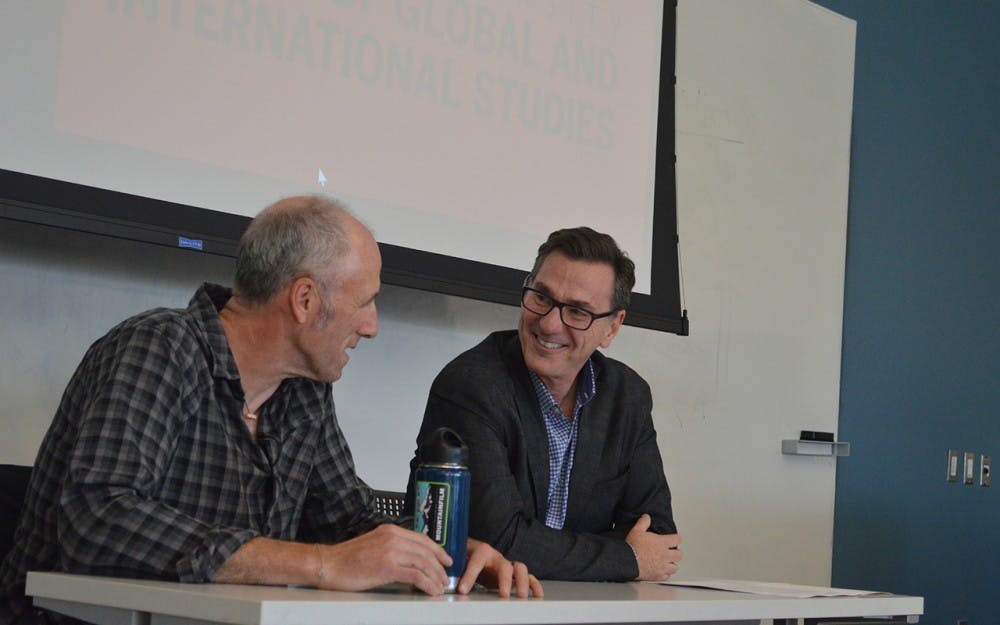On Thursday night, moviegoers gathered in the IU Cinema for a screening of the documentary film “The Diplomat” with one special guest in attendance: the film’s director, David Holbrooke. The film, released in 2015, follows the career of the late Ambassador Richard Holbrooke from his son David’s perspective.
In collaboration with IU Cinema, the School of Global and International Studies and the Media School, Holbrooke visited IU for the screening of his film, as well as a discussion beforehand. During the discussion, led by Lee Feinstein, dean of School of Global and International Studies, Holbrooke discussed his reasons for making the film, as well as his father’s life and legacy.
“One of the themes in the film is the sacrifices one needs to make for a life of public service, or really any service,” Holbrooke said. “If you want to be a great filmmaker or you want to do whatever, it’s going to take you away from your family. He was absent to war zones, he was absent but he really made a difference. In the end, it was for a reason that was really worthwhile.”
Holbrooke said he made the film for three reasons: he wanted his grandchildren to understand more about their grandfather, he felt like his father still had something else to say, and he wanted to inspire another generation of diplomats.
“Diplomacy is hugely important,” he said. “This film has helped people understand what diplomats do and why it matters. Diplomats are always essential, and that’s true now more than ever.”
During the discussion, Feinstein said there are many faculty members on campus whose lives have been impacted by Richard. Feinstein has also served high-level positions in diplomacy and foreign affairs, and he said his service overlapped with Richard’s during the Clinton administration.
Feinstein said Richard served as a special adviser on Pakistan and Afghanistan working under President Barack Obama and Secretary of State Hillary Clinton.
“It was easily the toughest diplomatic job assigned in modern years,” Feinstein said. “David’s dad passed away on Dec. 13, working literally up until his last moments, towards a path to reconciliation to end the war.”
Both Holbrooke and Feinstein highlighted Richard’s biggest achievement during his time as Ambassador, which was his ending of the war in Bosnia through the Dayton Peace Accords. In the production of the film, David Holbrooke traveled to Vietnam, Herzegovina, Kosovo, Croatia, Afghanistan and Bosnia.
Holbrooke said many people approached him while he was in Kosovo to praise his father.
“People came up to me all the time and said, ‘Holbrooke? Your father is the founding father of this country,’” he said. “It was an incredible odyssey. Then there are all the people who he touched along the way, and he could get a lot done.”
Holbrooke said his father loved engaging with the citizens of the countries he lived in and that it helped him truly understand their nations. He also said Richard was a great source for journalists and would listen to their accounts of what was going on.
“He was committed and he believed in the power of diplomacy,” Holbrooke said. “He believed in American power in a way that doesn’t entirely fit with mine, but he was a patriot. It’s a word that’s not used in the film, but he had a unique need to be exceptional. That can be interpreted in a variety of ways, but for him, that was to be a force for good.”




